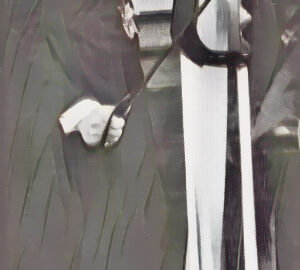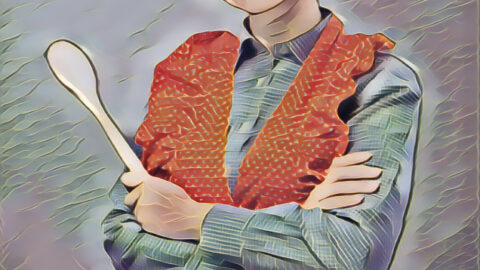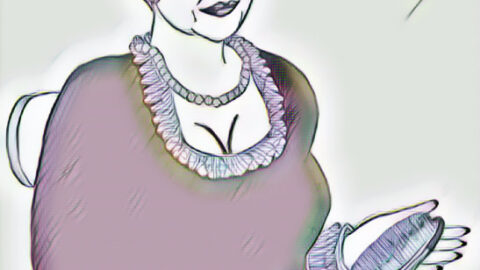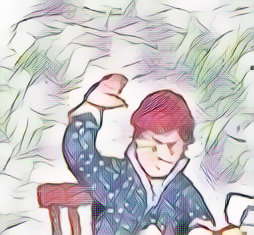In the mellow haze of the late 1960s, when the world was awash with new music, shifting fashions, and the promise of change, our town welcomed its very own comprehensive school. It was a place designed for kids like me—those who didn’t quite fit the grammar school mould, but were far from lost causes. The red-brick building, with its modern lines and big windows, stood as a symbol of progress, offering opportunity and, inevitably, a bit of mischief.
Comprehensives were the talk of the times, offering lessons that would have made our grandparents raise an eyebrow. One of the most radical was domestic science—cookery, as we called it. Picture it: boys and girls, side by side, learning to whisk, stir, and bake. The classroom buzzed with the scent of melting chocolate and the nervous energy of boys who’d never set foot near a cooker. What could possibly go wrong?
Our first culinary adventure was the classic chocolate Rice Krispies or Cornflake cake. The instructions were simple: melt the chocolate, stir in the cereal, spoon the mixture into paper cases, and let them set in the fridge. It seemed foolproof, but as I would soon discover, even the simplest recipes can turn into the most unforgettable disasters.
But the real beginning of my story isn’t in the classroom—it’s in the lively, avocado-green kitchen of my mate Peter’s house. It was either his mum’s birthday or maybe Mother’s Day—my memory’s a bit fuzzy on that. What I do remember, clear as day, is the excitement as Peter and I plotted our surprise. The kitchen was filled with the golden light of a late afternoon, the radio playing The Beatles softly in the background. We were determined to make something special for his mum, to show her our appreciation in the sweetest way we knew.
We set to work with the earnestness only eleven-year-old boys can muster. The chocolate melted in a battered saucepan, its rich aroma filling the room and making our mouths water. We giggled as we stirred in the cereal, the mixture crackling and popping under our wooden spoon. In our excitement, we didn’t notice the growing chaos—the sticky smears on the counter, the trail of chocolatey fingerprints on the fridge door, the ominous wobble of the heavy mixing bowl in Peter’s hands.
Disaster struck in a heartbeat. Peter, his face flushed with pride, lifted the bowl to pour the mixture into the cases. His foot caught on the edge of the shaggy rug, and time seemed to slow. The bowl slipped from his grasp, crashing onto the tiled floor with a sound that echoed through the house. Chocolate and cereal exploded everywhere, splattering the walls, the floor, and, most unfortunately, the family cat.
Duchess, a regal cream Persian with an air of disdain, had been watching us from her perch on a kitchen stool. In the confusion, I reached out to scoop her up, hoping to save her from the mess. She wriggled free, her fur brushing against my chocolate-smeared hands, and darted straight through the puddle of chocolate, emerging on the other side looking more like a dessert than a cat. Her indignant yowl was drowned out by our panicked laughter.
Realising the scale of the disaster, we sprang into action. Peter grabbed a dustpan and brush, but only managed to spread the sticky mess further. The kitchen, once a place of order and comfort, now looked like a war zone. Shards of glass glinted among pools of chocolate, and Duchess, her dignity in tatters, stalked the room leaving chocolaty paw prints in her wake. I felt a knot of dread tighten in my stomach, knowing that no amount of cleaning could hide what we’d done.
The sound of the front door opening sent a jolt of fear through us. Peter’s mum walked in, her eyes widening as she took in the scene: two guilty boys, a chocolate-coated cat, and a kitchen in utter chaos. For a moment, she was silent, her face a mask of disbelief. Then, in a voice trembling with shock, she demanded, “What on earth have you done?” We stumbled over our explanations, our words tumbling out in a jumble of apologies and excuses. Peter, ever the optimist, insisted, “It was meant to be a surprise!” And so it was, though not the kind we’d intended.
Her gaze fell upon Duchess, who sat atop the stool, licking her chocolate-stained paws with an air of wounded pride. Mrs. Thompson pressed her hands to her cheeks, her composure slipping. “Stay there—don’t touch a thing!” she commanded, her voice brooking no argument. We stood frozen, the weight of our mischief settling upon us.
In those days, the telephone was a chunky plastic affair in the hallway, its rotary dial and curly cord a symbol of grown-up authority. We listened as Mrs. Thompson dialled my house, her voice low and urgent. Soon, I was called to the phone, my heart pounding in my chest. My mum’s voice, cool and measured, came through: “You do exactly as Mrs. Thompson says, and you’ll get more from me when you get home.” The words sent a chill down my spine, the promise of further consequences hanging over me like a storm cloud.
After the call, Mrs. Thompson turned her attention to Peter. With a stern expression, she marched him upstairs, her footsteps echoing on the wooden stairs. I was left alone in the kitchen, told to sit and not move a muscle. The silence was heavy, broken only by the distant sound of water running and the soft, pitiful mews of Duchess as she tried to clean herself.
It soon became clear what was happening above. The sharp, unmistakable sound of a spanking drifted down the stairs, each crack of the slipper punctuated by Peter’s cries.






























































